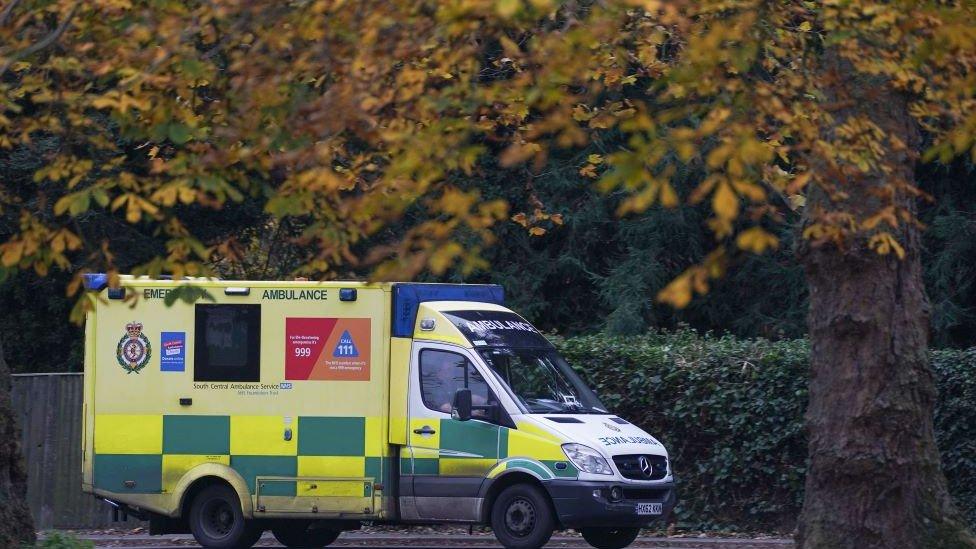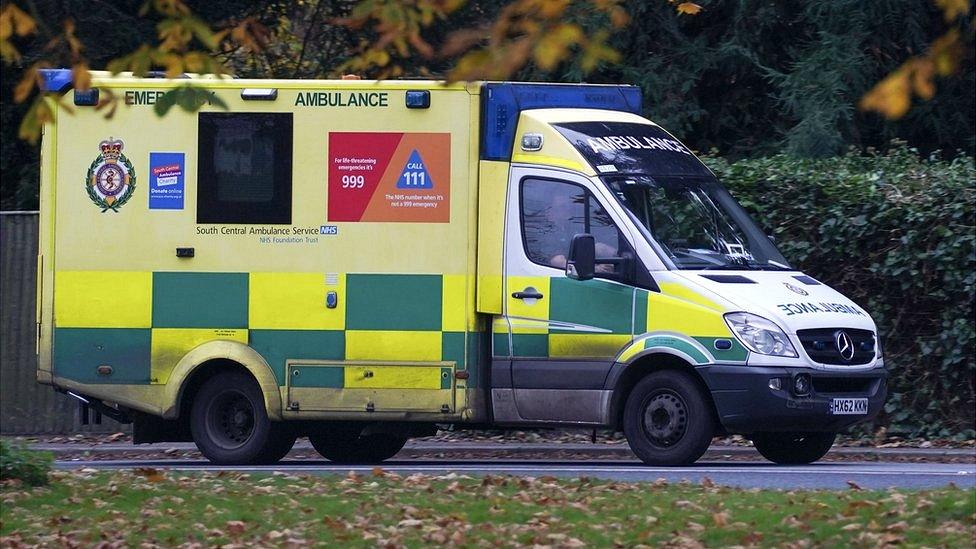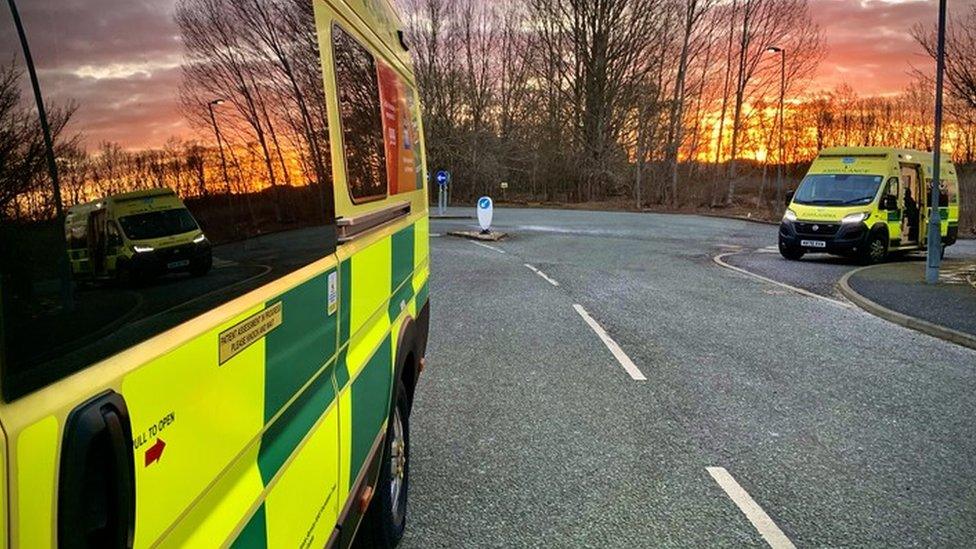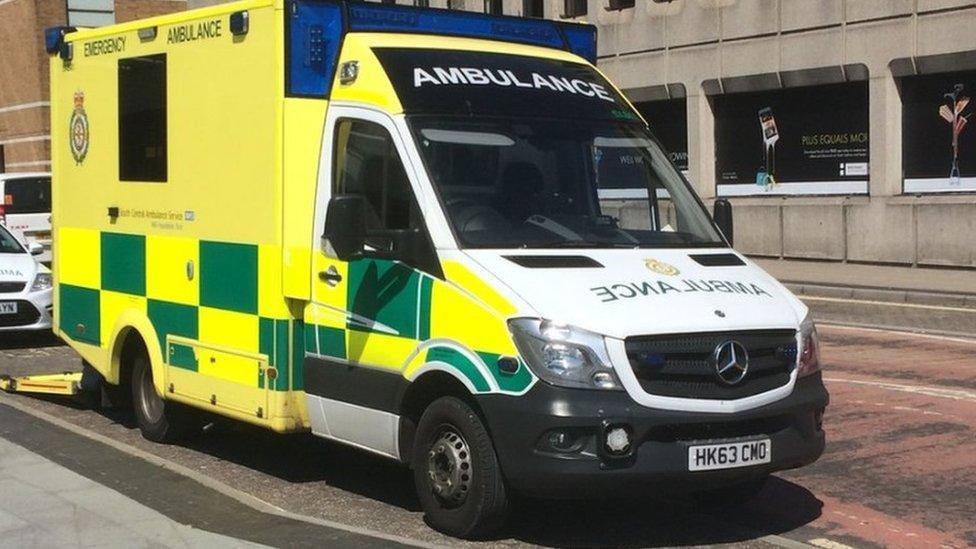Milton Keynes: Coroner fears city has insufficient ambulance cover
- Published

A coroner says he is concerned there are not enough ambulance resources to meet the need in Milton Keynes
Fears there are not enough ambulances to serve a city have been raised by a coroner following a woman's death.
Tom Osborne, senior coroner for Milton Keynes, raised the issue in a Prevention of Future Deaths Report after the death of Rita Taylor, 84, who waited seven hours for an ambulance.
She fell and hit her head at home in September, but was repeatedly told no ambulances were available.
The local ambulance service said it was mitigating the risks of response times.
In his report, external addressed to the Department of Health and Social Care, Mr Osborne said: "I am concerned that there are insufficient ambulance service resources to meet the needs of the city of Milton Keynes".
It said Mrs Taylor, who died of a brain bleed, waited nearly seven hours for an ambulance on 30 September, and during an initial 111 call at 10:28 BST she was assessed as a category three patient and told there were "no available resources".
There are four levels of categorisation, external, with one being the most critical and requiring an immediate deployment, and four the least urgent.
Two 999 calls were made over the next two hours, but each time she was assessed as category three and told no ambulance was available, the report said.
Following another emergency call and check-in calls from the ambulance service, it was reported Mrs Taylor was "in and out of consciousness" but still categorised as level three.
An audit of that call decided she should have been re-categorised as level one or two, the coroner said.
He added it took another two hours before her categorisation was changed. An ambulance eventually arrived at 17:15 BST - nearly seven hours after the original call.
"The delays in sending an ambulance resulted in a number of lost opportunities to admit her to hospital and begin her treatment," said Mr Osborne.
Mrs Taylor died later the same day at Milton Keynes University Hospital.
A spokesman for the South Central Ambulance Service said the coroner had recognised there was a national problem and that the Trust was "taking steps to mitigate the risks of increased response times".
The Department of Health and Social Care said: "No-one should be waiting longer than necessary for emergency care and we are taking urgent action to reduce waiting times, including investing up to £250m to free up hospital beds, reduce pressures on A&E and unblock delays in handing patients over from ambulances."

Find BBC News: East of England on Facebook, external, Instagram, external and Twitter, external. If you have a story suggestion email eastofenglandnews@bbc.co.uk, external
Related topics
- Published5 October 2022

- Published7 April 2022

- Published11 February 2022
